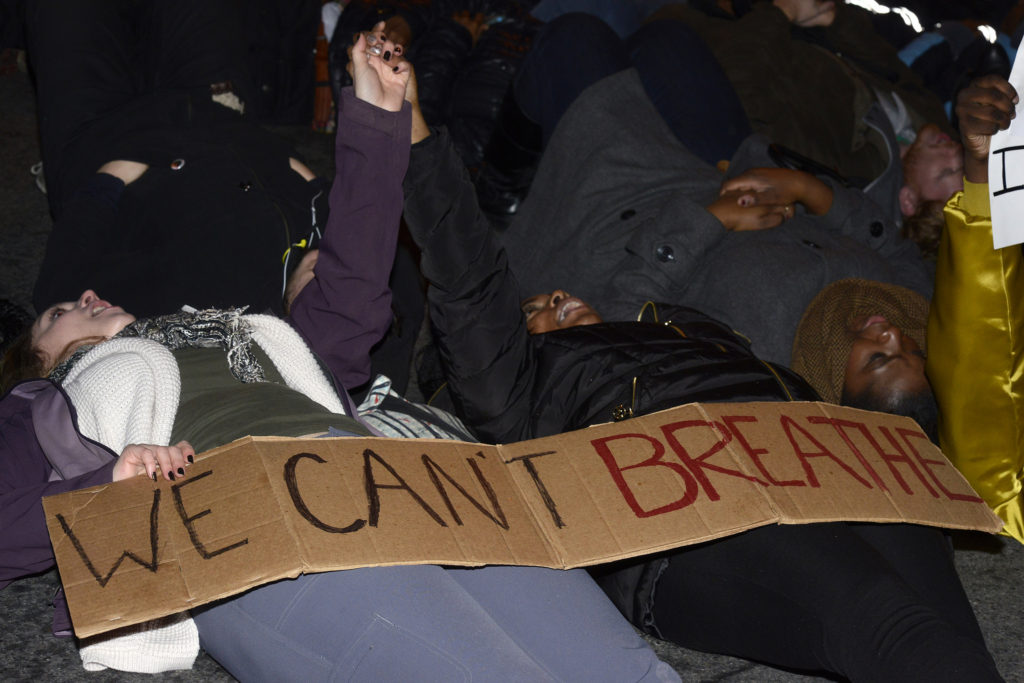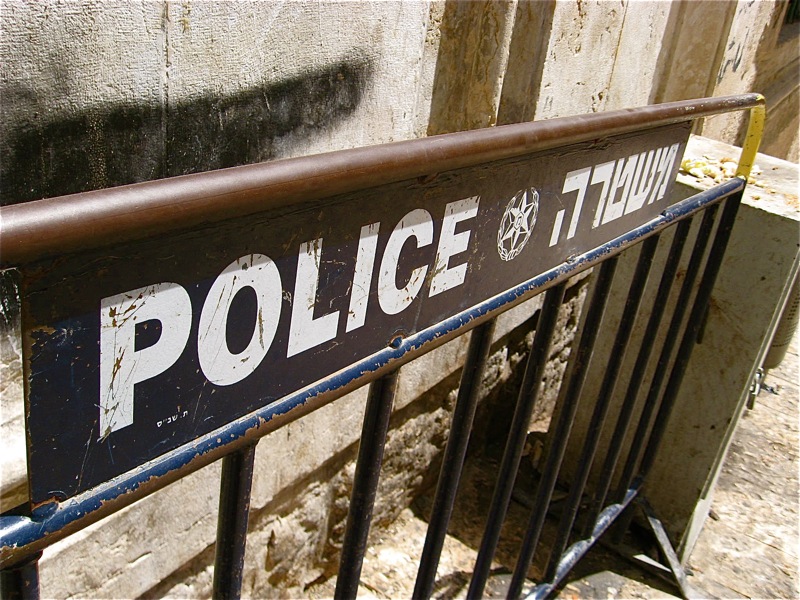Originally published at MintPress News.
WASHINGTON — The Black Lives Matter movement became a fixture in American cities after the 2014 death of Michael Brown, and grows with each new police killing. As activists realize that the same systems of oppression killing them in the United States are active worldwide, the movement spreads beyond American borders and forges links as far away as Palestine.
Activists from Ferguson, Missouri, traveled to Palestine in January to cement a growing sense of solidarity and connection with the shared struggles of Palestinians against the Israeli occupation. That connection is more than just a philosophical one: Although it’s been largely ignored by the mainstream media, research by independent journalists reveals that American police leadership routinely travel to Israel on mysterious training missions.
Journalist Rania Khalek is a contributor to the Electronic Intifada, an independent news and education organization focused on Palestine, and a key expert on the subject. For years she primarily covered police brutality in the U.S., but, “I started covering Palestine/Israel related stories because I kept finding connections,” she told MintPress by phone on Wednesday.
The NYPD openly maintains an office in Israel, but according to Khalek, the ties are more widespread.
“Almost every single police department in the United States has sent high-level commanders to Israel to receive lessons in occupation enforcement,” Khalek said.
In an August article on the repeated use of tear gas and brutality against non-violent Ferguson activists, Khalek revealed that two of the four police agencies used against the protests were trained in Israel. She reported:
Decades of testing and perfecting methods of domination and control on a captive and disenfranchised Palestinian population has given rise to a booming “homeland security industry” in Israel that refashions occupation-style repression for use on marginalized populations in other parts of the world, including St. Louis.
Months later, as Baltimore responded angrily to the death of Freddie Gray at the hands of six police officers, Khalek documented how the city’s response echoed the occupation of Palestine — from violent overreaction to thrown bottles and rocks to multiple reports of police brutality against journalists in Baltimore.
She reported that Baltimore police traveled to Israel 13 years ago on a trip sponsored by the Jewish Institute for National Security Affairs (JINSA):
“[Baltimore officers] studied Israeli occupation tactics used against Palestinians, including ‘crowd control,’ and coordination with the media,” according to a JINSA press release. “Participants resolved to begin the process of sharing ‘lessons learned’ in Israel with their law enforcement colleagues in the United States,” boasted JINSA.
During her conversation with MintPress, Khalek emphasized that while the evidence is conclusive that American police are receiving training from Israeli forces, how often and what kind of training they receive is much more difficult to determine.

Solidarity grows in the streets despite media denials
Whether they’re ignoring the issue or denying it outright, the mainstream media can’t be relied on to provide accountability. PunditFact, a joint effort of PolitiFact.com and the Tampa Bay Times, best known for critiquing the accuracy of Fox News, recently denied any connection between American and Israeli police forces. Khalek criticized PunditFact for relying on a single tweet from the Nation Of Islam rather than evaluating the many documented connections.
“Nobody in the mainstream wants to touch this issue,” Khalek told MintPress. “The mainstream press is very pro-Israel,” she added, explaining that showing the ways that American police are adopting repressive techniques first used against the Palestinians would inevitably lead to a critique of Zionism.
But like those Black Lives Matter protesters who traveled to Palestine, supporters of Palestinian liberation are now a fixture at events in the U.S., perhaps illustrating that rank-and-file activists understand the connection better than the media.
“Your struggle is our struggle,” wrote the International Solidarity Movement, and Khalek reported on a group of activists she observed in Baltimore:
Wearing their kuffiyehs — Palestinian checkered scarves — to remain easily visible to one another amid the likely chaos, the group shuffled back and forth between Washington, DC and Baltimore to lend their support as legal observers and medics.
“Systems of oppression are working together to share ideas on how to oppress people,” Khalek told MintPress. “Since the oppressors are working together, it makes sense for the oppressed to work together, too.”
“If we connect our struggles,” she concluded, “we’re more powerful and can have more of an impact.”
